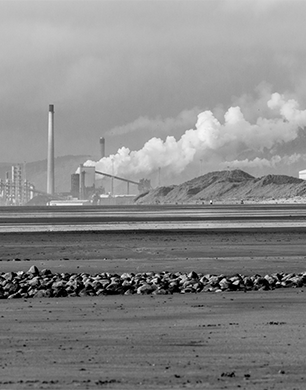
Photo Credit: Nick Russill via www.pexels.com
Keir Starmer proposes new £1.8 billion port infrastructure. Click here to learn about it.
The New £1.8 Billion Port Infrastructure Proposal UK
Labour leader Keir Starmer made headlines by speaking about what could be the most substantial investment in the UK’s port infrastructure in generations. When visiting North England, Starmer announced his plan to allocate a whopping £1.8 billion from Labour’s Green Prosperity Plan (GPP).
Where is all this money coming from? Public funds. But not from our taxes this time.
This fund should improve the UK’s ports and harbours, significantly enhancing the nation’s industrial and energy sectors.Read on to learn more.
Funding and Financial Framework
The proposed £1.8 billion investment shows the Labour hopes to catalyse billions more in private sector investments, reversing over a decade of industrial decline. So they say.
This funding apparently comes from a proposed windfall tax on oil and gas companies, aiming to modernise infrastructure and significantly stimulate job creation. The strategic use of these funds should ensure a multiplier effect – public investment directly leading to larger private investment, creating a robust economic stimulus across critical sectors. Notice how we keep saying should? It’s the UK, after all.
Impact on Local and National Economy
The investment plan should create 650,000 jobs, energising Britain’s industrial heartlands with new opportunities in clean energy, steel, automotive, and construction sectors. Labour’s comprehensive strategy includes establishing a National Wealth Fund intended to channel these funds into crucial projects. That should then create substantial local and national economic growth.
This targeted investment should invigorate local economies and be a catalyst for further economic development, enhancing the UK’s competitive edge globally – something that must happen if the economy is to continue to grow.
Enhancements in Material and Supply Quality
A key focus of the proposed infrastructure overhaul is significantly enhancing the quality of materials and supplies. It’ll implement sophisticated and superior materials and structures like an advanced retaining wall system – high-performance concrete for piers and docks, and corrosion-resistant alloys for marine applications. The quality of the supplies should equal a substantial part of the budget.
Upgrading to high-quality materials is essential for reducing environmental impacts and ensuring that new constructions are future-proofed.
Political and Economic Implications
Of course, there have to be political and economic implications.
The timing of this proposal is strategically aligned with the beginning of talks about the elections, expected to happen in January 2025. It naturally positions Labour as a proactive force in industrial revitalisation.
By focusing on transformative infrastructure investments, Labour wants to shift economic narratives and get support in essential coastal constituencies critical for the 2025 election. The proposal also shows detailed strategies for the UK’s energy transition, focusing on boosting offshore wind power as part of Labour’s commitment to achieving net-zero carbon emissions by 2030.
What do you think about the new proposal? Labour’s £1.8 billion port infrastructure proposal represents a transformative vision for the UK’s coastal regions – there’s no denying that. But we guarantee some people will think that’s a lot of money that could go elsewhere. It’s public funds – but the vision of rebuilding Britain’s industrial base should grow the economy. Don’t worry, people of Britain, the money should come back to you.

